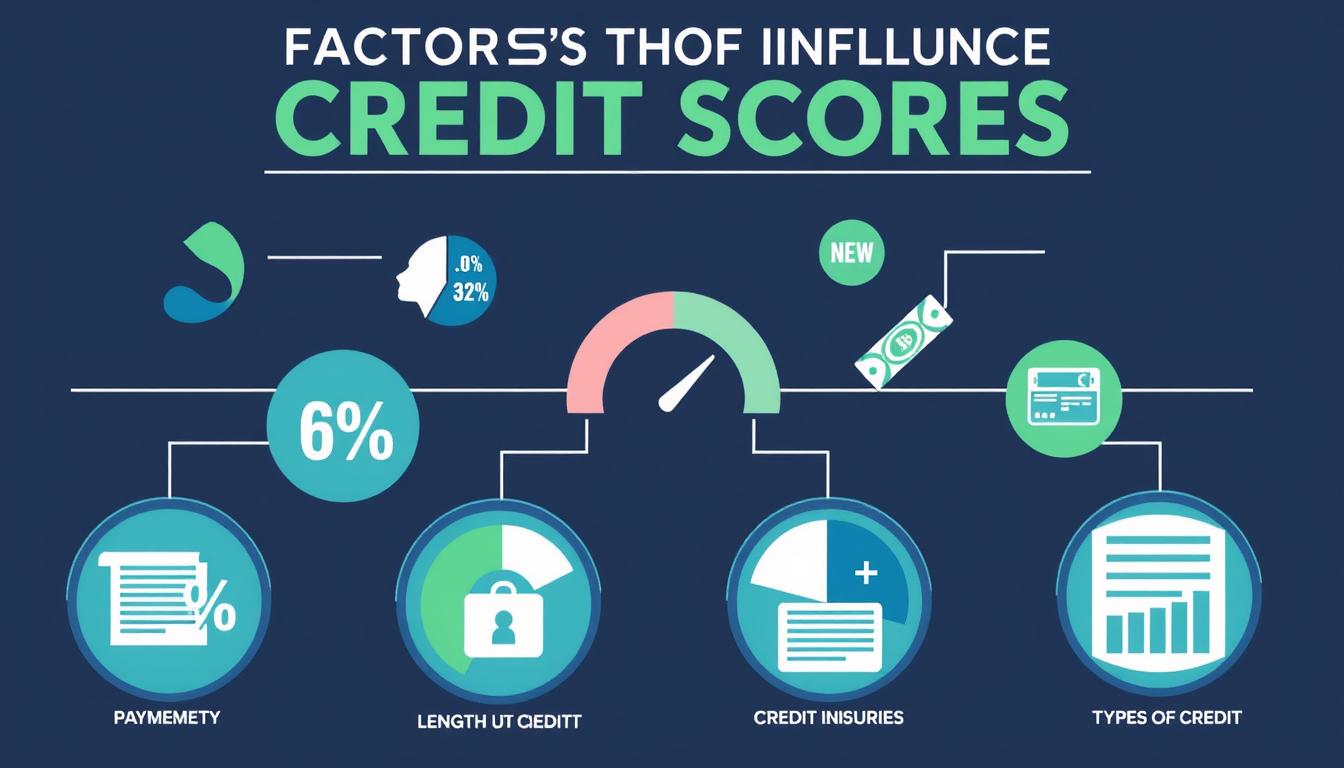A WF PLL credit inquiry happens when you apply for a loan or credit card. Lenders use this check to assess your creditworthiness. It helps them decide on loan terms and credit card offers.
Understanding this inquiry is vital for your financial health. It can affect your credit score. Knowing how to manage it is key to maintaining a good credit profile.
Key Takeaways
- A WF PLL credit inquiry is a type of credit check performed by lenders when you apply for a loan or credit card.
- This inquiry can impact your credit score, so it’s important to understand how it works and how to manage it.
- There are different types of credit inquiries, including hard inquiries and soft inquiries, which have varying effects on your credit score.
- Lenders use credit inquiries to assess your creditworthiness and determine the terms of the loan or credit card offer.
- Regular credit monitoring and disputing inaccurate credit inquiries can help you maintain a healthy credit profile.
Understanding the WF PLL Credit Inquiry
A WF PLL credit inquiry is a credit check by Wells Fargo for their Preferred Loan Lender program. It happens when you apply for a loan or credit product. This check affects your credit profile, so it’s important to understand it.
What is a WF PLL Credit Inquiry?
A WF PLL credit inquiry is a hard credit check by Wells Fargo. It’s done when you apply for a loan or credit card. Wells Fargo uses it to review your credit history and assess your creditworthiness.
Why Does It Matter?
The WF PLL credit inquiry can affect your credit score. Hard inquiries may lower your score by a few points. They show lenders you’re seeking new credit, which can be risky.
However, a single hard inquiry usually has a small, short-term impact. Knowing about WF PLL inquiries helps you make smart credit management choices. You can take steps to minimize their effect on your credit report and score.
“Understanding the impact of a WF PLL credit inquiry can help you make informed decisions about your credit management.”
The Impact on Your Credit Score
Your credit score is vital for your financial health. Lenders, landlords, and employers use it to assess you. Credit inquiries, like WF PLL, can affect this important number.
Hard inquiries can temporarily lower your credit score by a few points. The impact depends on your credit utilization and existing inquiries. A single inquiry may drop your score by 5-10 points.
Multiple inquiries in a short time can have a bigger effect. However, the impact usually fades within 12 months. Responsible credit habits can help maintain your financial standing.
“Monitoring your credit report and understanding the impact of credit inquiries is crucial for maintaining a healthy financial profile.”

- Hard inquiries can temporarily lower your credit score by a few points.
- The extent of the impact depends on your overall credit utilization and the number of hard inquiries on your credit report.
- The impact of a hard inquiry is usually temporary and will diminish over time, typically within 12 months.
Understanding credit inquiries’ impact helps you make smart decisions. You can better manage your credit score and FICO score. This knowledge supports a healthy financial profile.
Types of Credit Inquiries
Credit inquiries come in two forms: hard and soft. Each type affects your credit profile differently. Knowing the difference helps you manage your credit effectively.
Hard Inquiries vs. Soft Inquiries
A hard inquiry happens when you apply for new credit or financing. It can temporarily lower your credit score. This shows you’re seeking new credit.
A soft inquiry occurs when you or a lender checks your credit. This can be for pre-approval or routine monitoring. Soft inquiries don’t affect your credit score.
When Do Inquiries Occur?
Credit inquiries happen in various situations. These include:
- Applying for a new credit card or loan
- Refinancing an existing loan
- Checking your own credit report through a credit monitoring service
- Landlords or employers reviewing your credit report as part of a background check
- Utilities, such as cable or internet providers, checking your credit report when you sign up for their services
Knowing when credit inquiries occur helps you make smart credit decisions. This knowledge can help minimize impacts on your credit score.
wf pll credit inquiry and Loan Applications
The wf pll credit inquiry is vital in Wells Fargo’s lending decisions. It helps assess your credit history and creditworthiness. This inquiry affects the approval and terms of your loan application.
How Lenders Use Credit Inquiries
Lenders review credit reports and credit history to evaluate financial responsibility. They use this info to assess the risk of lending money. The wf pll credit inquiry is a key factor in these decisions.
Lenders use credit inquiries to determine several things. They look at your credit score and overall creditworthiness. They also check your debt-to-income ratio and ability to repay.
Credit inquiries help identify red flags or credit issues. These could affect timely payments. Lenders use this data to decide on approvals, interest rates, and terms.
- Determine the applicant’s credit score and overall creditworthiness
- Assess the applicant’s debt-to-income ratio and ability to repay the loan
- Identify any red flags or potential credit issues that may impact the applicant’s ability to make timely payments
- Decide whether to approve the loan application and, if approved, what interest rates and terms to offer
Lenders use the wf pll credit inquiry to make informed decisions. This helps them minimize financial risk. It also allows them to offer loans tailored to your situation.
| Lender’s Considerations | Impact on Loan Application |
|---|---|
| Credit Score | Determines Approval and Terms |
| Debt-to-Income Ratio | Indicates Ability to Repay |
| Credit History and Issues | Identifies Potential Risks |

“The wf pll credit inquiry is a crucial piece of information that lenders use to make informed decisions about loan applications. It provides valuable insights into an applicant’s financial responsibility and creditworthiness.
Credit Monitoring and Inquiries
Your credit score greatly affects your financial options. Regular credit monitoring helps spot issues on your credit report. It allows you to tackle problems and keep your credit healthy.
Credit monitoring helps find errors in your credit report quickly. These can include wrong credit inquiries that hurt your score. By checking often, you can dispute mistakes and keep your report accurate.
- Understand the impact of credit inquiries on your credit score
- Identify and address any unauthorized or inaccurate inquiries on your credit report
- Stay informed about your overall credit profile and financial standing
Credit monitoring also helps spot signs of identity theft. It can reveal fake accounts or credit applications in your name. Catching these early helps protect your finances and credit.
| Credit Monitoring Service | Key Features | Cost |
|---|---|---|
| Credit Karma |
| Free |
| Experian IdentityWorks |
| $9.99 – $19.99 per month |
| LifeLock |
| $9.99 – $34.99 per month |
Regular credit monitoring is key to a healthy credit profile. It protects you from identity theft and credit report errors. Staying informed helps you maintain a good credit score and opens up future opportunities.
Best Practices for Managing Credit Inquiries
A healthy credit score is vital. Managing credit inquiries proactively is key. Follow these practices to minimize hard inquiries’ impact and keep your credit report accurate.
Minimizing Hard Inquiries
Be careful about the type of inquiry when shopping for credit. Hard inquiries can negatively impact your credit score. These occur when lenders check your credit report.
Here are tips to minimize hard inquiries:
- Rate shop within a short timeframe: Complete applications within 14-45 days. Credit bureaus will group multiple inquiries, limiting the impact on your score.
- Utilize pre-approval and pre-qualification options: Many lenders offer these without triggering a hard inquiry. This helps narrow down options before formal applications.
- Avoid unnecessary credit applications: Be selective when applying for new credit. Each hard inquiry can temporarily lower your score.
Checking Your Credit Report Regularly
Reviewing your credit report often is crucial. It ensures accuracy and helps identify issues like inaccurate credit inquiries. Take these steps:
- Check your credit report from all three major bureaus yearly. Get free annual reports from AnnualCreditReport.com.
- Review for errors, including incorrect credit inquiries. Dispute any discrepancies with the credit bureaus if found.
- Use credit monitoring services for alerts about changes. This helps you stay informed and quickly spot potential issues.
These practices will help you manage credit inquiries effectively. You’ll maintain a strong credit profile and support your financial health.

The Role of Credit Bureaus
Credit bureaus are crucial in credit reporting and scoring. They gather, maintain, and share credit information about individuals. This information can affect a person’s credit score.
Understanding the Major Credit Bureaus
Experian, Equifax, and TransUnion are the three major U.S. credit bureaus. They collect data from various sources to create comprehensive credit reports.
Each bureau has its own method of gathering and organizing credit information. This can cause differences in reported data across bureaus. It’s important for consumers to check their reports from all three sources.
| Credit Bureau | Key Features | Contact Information |
|---|---|---|
| Experian | – Specializes in identity theft protection – Offers a range of credit monitoring and reporting services | Phone: 1-888-397-3742 Website: www.experian.com |
| Equifax | – Known for its advanced analytics and data insights – Provides a variety of credit and identity protection products | Phone: 1-800-685-1111 Website: www.equifax.com |
| TransUnion | – Focuses on helping consumers better understand their FICO score – Offers tools for monitoring credit and protecting against identity theft | Phone: 1-800-888-4213 Website: www.transunion.com |
Knowing about these major credit bureaus helps consumers navigate credit reporting and scoring. It ensures their financial information stays accurate and current.
Factors That Influence Your Credit Score
Your credit score is vital for your financial health. It affects your loan and credit card eligibility. Let’s explore the key factors that shape your FICO score and credit profile.
Payment History
Payment history is the most crucial factor in your credit score. Lenders value on-time payments highly. It shows your reliability in managing credit.
Late or missed payments can harm your score significantly. Consistent, timely payments are essential for a good credit score.
Credit Utilization
Credit utilization is how much of your available credit you’re using. Experts suggest keeping it below 30% for a healthy credit score.
High credit utilization may signal financial struggles to lenders. It’s wise to keep your credit usage low.
Length of Credit History
Your credit history length affects your credit score. Longer histories with diverse accounts often lead to higher scores.
This shows a proven record of managing credit over time. It demonstrates your experience with various credit types.
Types of Credit
Lenders consider your mix of credit types. This includes credit cards, auto loans, mortgages, and personal loans.
A diverse credit mix can boost your credit score. It shows you can handle different credit accounts responsibly.
Understanding these factors helps you make smart credit decisions. This can improve your credit score and open up better financial opportunities.

Disputing Inaccurate Credit Inquiries
Your credit report’s accuracy is vital for a strong financial foundation. Inaccurate or unauthorized credit inquiries can hurt your credit score. You can dispute these errors and have them removed from your credit report.
Start by reviewing your credit report for suspicious or unauthorized credit inquiries. Next, file a formal dispute with the relevant credit bureau. Write a detailed letter explaining the inaccuracies and include supporting documents.
- Thoroughly examine your credit report for any questionable credit inquiries.
- Gather evidence, such as account statements or correspondence, to support your dispute.
- Contact the appropriate credit bureau and submit a formal written dispute.
- Monitor your credit report and credit monitoring to ensure the disputed credit inquiries are successfully removed.
Addressing inaccurate credit inquiries protects your credit report and maintains a healthy credit score. Stay alert and act fast to safeguard your financial records.
| Step | Action |
|---|---|
| 1 | Review your credit report for any questionable credit inquiries. |
| 2 | Gather supporting documentation to validate your dispute. |
| 3 | Submit a formal written dispute to the relevant credit bureau. |
| 4 | Monitor your credit report and credit monitoring to ensure the disputed credit inquiries are removed. |
“Protecting the integrity of your credit report is the foundation for a strong financial future.”
Conclusion
Understanding WF PLL credit inquiries is crucial for maintaining a healthy credit score. It helps you make informed financial decisions. By managing credit inquiries, you can take control of your financial future.
WF PLL credit inquiries are essential in the lending process. They can impact your credit report and score. Minimizing unnecessary hard inquiries helps protect your credit standing.
Be an informed and proactive consumer to manage credit inquiries effectively. Stay vigilant and review your credit reports regularly. Work on maintaining a strong credit profile.
With this knowledge, you’ll be better equipped to achieve your financial goals. You can also maintain a healthy credit standing for years to come.

